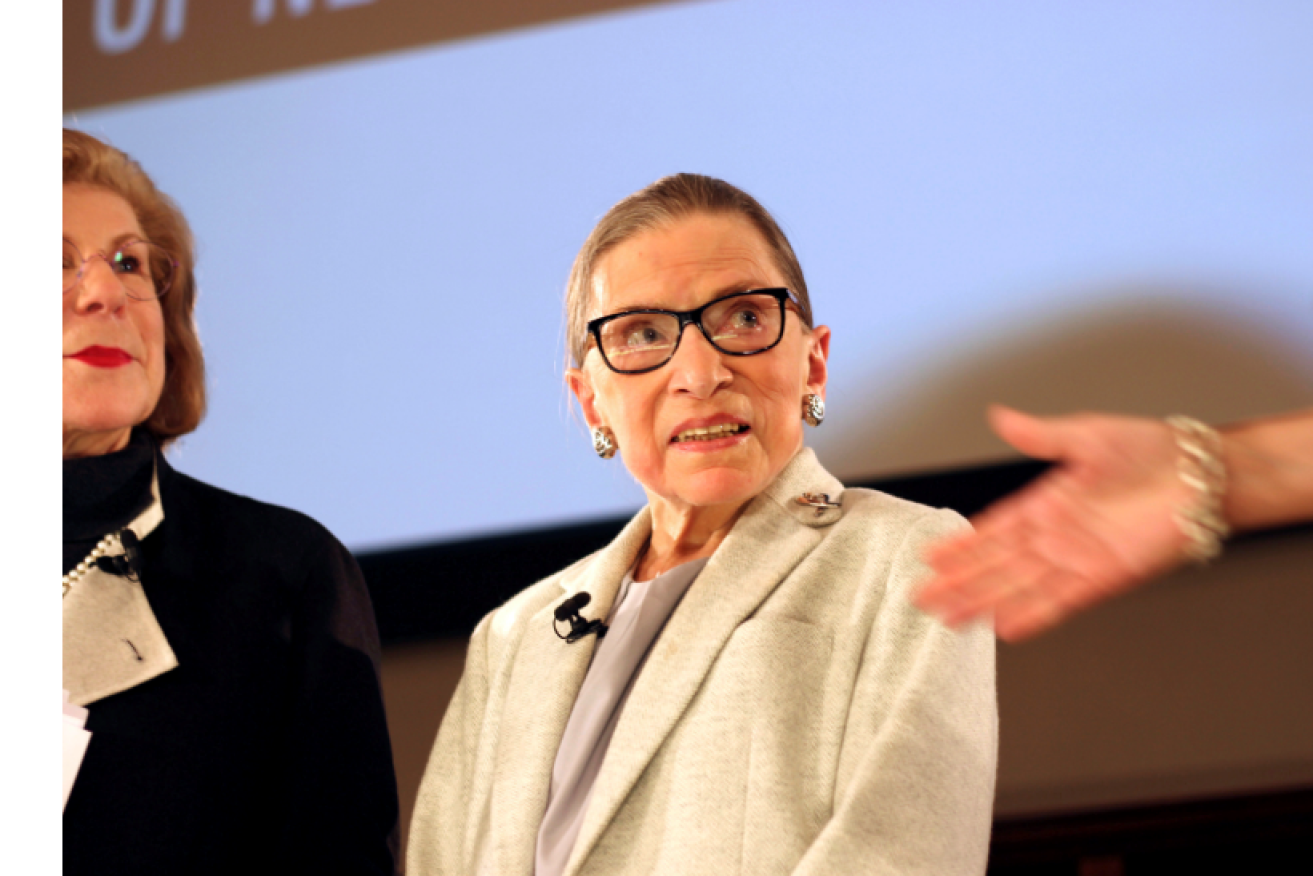US Supreme Court Justice Ruth Bader Ginsburg dies aged 87

Justice Ruth Bader Ginsburg has died after a long battle with cancer. Photo: AP
Ruth Bader Ginsburg, the US Supreme Court Justice who established herself as a trailblazer for women’s rights and gender equality, has died, the Supreme Court has announced. She was 87.
Ms Ginsburg recently announced her cancer had returned, and said she would be undergoing chemotherapy treatment. Despite her age and long medical history, Ms Ginsburg, a liberal voice on the bench, said she would remain on the Supreme Court.
“I have often said I would remain a member of the Court as long as I can do the job full steam. I remain fully able to do that,” Ms Ginsburg said.
She had several bouts with cancer, including a 1999 surgery for colorectal cancer and early treatment for pancreatic cancer in 2009.
Her death just over six weeks before Election Day is likely to set off a heated battle over whether US President Donald Trump should nominate, and the Republican-led Senate should confirm, her replacement, or if the seat should remain vacant until the outcome of his race against Democrat Joe Biden is known.
Majority Leader Mitch McConnell said on Friday (local time) that the Senate will vote on Mr Trump’s pick to replace Ginsburg, even though it’s an election year.
Mr Trump called Ms Ginsburg an “amazing woman” and did not mention filling her vacant Supreme Court seat when he spoke to reporters following a rally in Bemidji, Minnesota.
Mr Biden said the winner of the November election should choose Ms Ginsburg’s replacement.
Tweet from @ABC
Ms Ginsburg was born on March 15, 1933 in Brooklyn, New York. She earned her bachelor’s degree from Cornell University, where she met her husband Martin D. Ginsburg.
Following her graduation in 1954, they married and moved to Fort Sill, Oklahoma, where Marty Ginsburg completed his military service before attending Harvard Law School.
She gave birth to their first child Jane in 1955 before starting classes at Harvard Law School just 14 months later. At Harvard, she was one of nine women in a class of about 500 men.
When Marty was diagnosed with testicular cancer, she attended classes and took notes for both of them. Even with the added responsibility, she was named to the Harvard Law Review.
When her husband moved to New York for work, she transferred to Columbia University for her final year of law school. She once again won a seat on the college’s law review and graduated at the top of her class.
However, despite her long history of academic success, she found that her sex prevented her from obtaining any positions at a established law firms.
As a result, Ms Ginsburg turned to teaching, becoming a law professor at Rutger’s University in 1963 before transferring to Columbia University Law School two years later.
There, she became the first woman to receive tenure and helped co-found The Women’s Rights Law Reporter, the first law journal in the United States devoted to gender equality issues.
Ms Ginsburg’s first case before the United States Supreme Court came in 1973 after the American Civil Liberties Union referred several sex discrimination complaints to her desk, creating the beginning of Ms Ginsburg’s long resume of important gender discrimination cases.
One such case was Moritz v. Commissioner of Internal Revenue, which involved a man who was denied a tax deduction for taking care of a disabled relative — he alleged, because of his gender.
Ms Ginsburg was appointed to the Supreme Court by President Bill Clinton and was sworn in on August 10, 1993. She became the second female justice, after Sandra Day O’Connor to be named to the highest court. When O’Connor retired in 2006, Ginsburg was the only female justice on the court until Sonia Sotomayor joined the bench in 2009.
In 2018, Ms Ginsburg was the subject the Oscar-nominated documentary RBG, which chronicled decades of the Supreme Court Justice’s career. In the same year, another film, Mimi Leder’s On the Basis of Sex starring Felicity Jones, focused on Ginsburg’s early life and career as a champion of gender equality.
Later in her career, Ms Ginsburg became a pop culture icon, affectionately known as Notorious RBG.
The outspoken and fierce associate justice inspired everything from memes to one of Kate McKinnon’s most popular impressions on Saturday Night Live.
Ms Ginsburg is survived by her daughter Jane C. Ginsburg and her son James Steven Ginsburg.
-AAP







